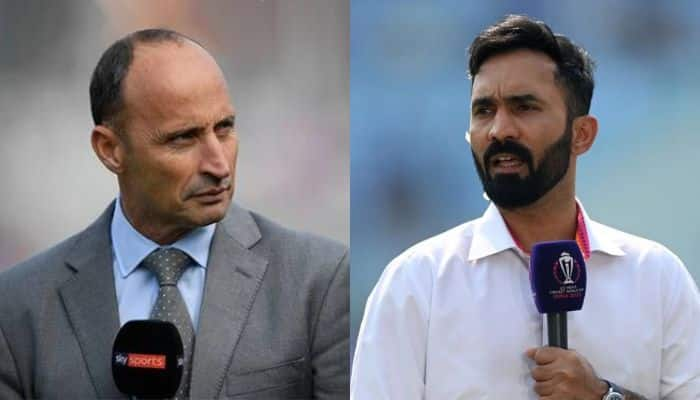In the high-stakes build-up to the fourth Test of the Anderson-Tendulkar Trophy at Old Trafford, tensions flared off the field just as much as they did on it. A lingering controversy from the Lord’s Test involving Shubman Gill’s “90-second” accusation against England’s time-wasting tactics resurfaced, igniting a sharp exchange between former captains Nasser Hussain and Dinesh Karthik.
Shubman Gill Questions England’s Tactics at Lord’s
India captain Shubman Gill raised eyebrows during the pre-match press conference ahead of the Manchester Test by calling out England’s openers, Zak Crawley and Ben Duckett, for arriving late at the crease during the final moments of Day 3 at Lord’s. Gill claimed that the 90-second delay prevented India from bowling an extra over and accused England of not playing within the spirit of the game.
“Every team wants to play fewer overs under fading light, that’s understandable,” Gill said. “But walking out 90 seconds late isn’t how it should be done. That’s where the line was crossed.”
The statement quickly sparked reactions across the cricketing community, with fans and experts debating whether Gill’s frustration was justified or an overreaction. Among the most notable responses came from former England captain Nasser Hussain.
Nasser Hussain Dismisses the Criticism, Karthik Responds Strongly
During commentary for Sky Sports on Day 1 of the Manchester Test, Hussain addressed Gill’s remarks with sarcasm and skepticism. “That’s what made me laugh about Shubman Gill’s press conference,” he said. “England did delay it, but every team does it. India will do it tonight if given the chance.”
Dinesh Karthik, never one to hold back, countered with a firm response. “The difference is, I don’t think India have the option to take 90 seconds before walking out to bat. Gill’s issue was with the delay in arriving at the crease—not general stalling in the middle. That’s what upset him.”
Karthik’s reply struck a chord with many, reframing the conversation to focus on intent and context, rather than routine end-of-day tactics.
When Gamesmanship Clashes with the Spirit of Cricket
Time-wasting in Test cricket is not new. Teams frequently use subtle strategies—taking extra time with pads, gloves, or discussions—to reduce exposure under tough conditions. But Gill’s comments emphasize that while such tactics may be commonplace, there’s a line between being clever and being unsporting.
On Day 1 of the Manchester Test itself, the situation nearly repeated. With light deteriorating, Indian batters Ravindra Jadeja and Shardul Thakur hesitated to resume batting, leading to umpire intervention. Hussain referenced this moment to underline his earlier point, but Karthik once again clarified that Gill’s concern was about late arrival, not stalling during play.
A Divisive Remark That Highlights a Leadership Trait
For some, Gill’s statement was a refreshing show of leadership—an Indian captain standing up for fair play and setting a tone for how the team expects the game to be played. For others, it was a case of selective morality, especially when such tactics are often used by all sides.
Still, Gill’s focus on the spirit of the game has reignited an age-old cricketing debate. Where is the line between gaining a competitive edge and disrespecting the integrity of the sport?

